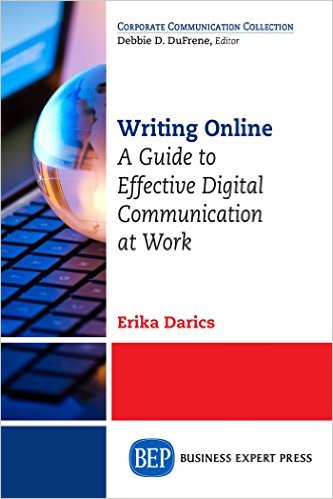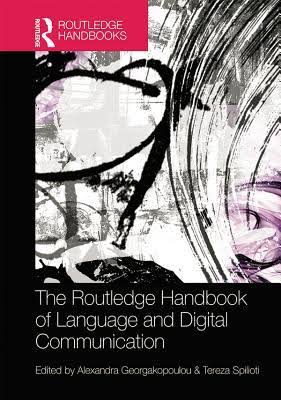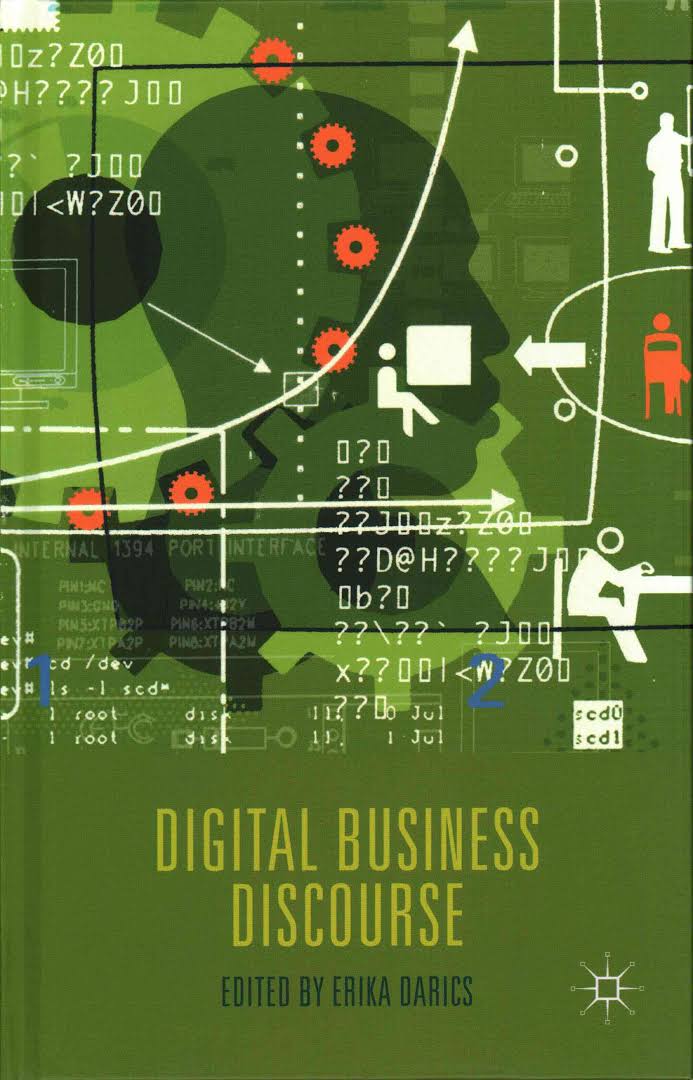Publications

Providing a clear, convincing and approachable discussion, this book addresses arenas of online writing: virtual teamwork, instant messaging, emails, corporate communication channels, and social media. Instead of offering do and don't lists, however, it teaches the reader to develop a practice that is observant, reflective, and grounded in the understanding of the basic principles of language and communication. Through real-life examples and case studies, it helps the reader to notice previously unnoticed small details, question previously unchallenged assumptions and practices, and become a competent digital communicator in a wide range of professional contexts.

Darics E (2016) Digital media in workplace interactions. In A. Georgakopoulou, & T. Spiliotti (Eds.), The Routledge handbook of language and digital Communication. London, New York: Routledge, pp. 197-211.
In this chapter I argue that the observation of digital workplace discourse can give us a clearer insight into how exactly digital media in the workplace affects corporate communication practices. The findings of such enquiries could then provide a useful resource for communication experts and business professionals and inform training materials aimed at professionals communicating via digital media, courses aimed at enhancing online communication, and popular publications on digital discourse in the workplace. The combination of knowledge from organisational studies,
business discourse studies, and computer-mediated communication studies could help to avoid problematic workplace communication that could lead to costly negative outcomes, thus enhancing the communication effectiveness of business interactions using digital media.

The book offers a distinctively language- and discourse-centered approach to digitally mediated business and professional communication, providing a timely and comprehensive assessment of the current digital communication practices of today's organisations and workplaces. It is the first dedicated publication to address how computer-mediated communication technologies affect institutional discourse practices, bringing together scholarship from a range of disciplinary backgrounds, including organisational and management studies, rhetorical and communication studies, communication training and discourse analysis. Covering a wide spectrum of communication technologies, such as email, instant messaging, message boards, Twitter, corporate blogs and consumer reviews, the chapters gather research drawing on empirical data from real professional contexts. In this way, the book contributes to both academic scholarship and business communication training, enabling researchers, trainers and practitioners to deepen their understanding of the impact of new communication technologies on professional and corporate communication practices.


